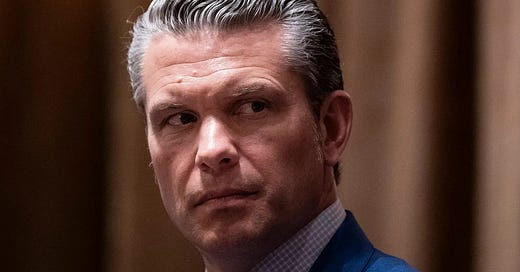NATO is Not Forever
US Secretary of Defense Pete Hegseth’s absence from the NATO-led gathering of over 50 defense ministers in Brussels has raised questions about shifting priorities in Washington.
By Dr. Digby James Wren
For the first time in the three-year history of the Ukraine Defense Contact Group (UDCG), a Pentagon chief will not attend its monthly meeting. US Secretary of Defense Pete Hegseth’s absence from the NATO-led gathering of over 50 defense ministers in Brussels has raised questions about shifting priorities in Washington. The meeting, scheduled for Wednesday, was focused on coordinated military aid to Ukraine amidst Russian advances all along the line of contact.
Reasons Behind Hegseth’s Absence
According to Pentagon Press Secretary Kingsley Wilson, scheduling conflicts have prevented Hegseth from attending. Instead, US Ambassador to NATO Matthew Whitaker will represent the United States at the meeting. Wilson emphasized that America remains committed to ending the war in Ukraine on terms that establish an enduring peace. Hegseth is slated to attend Thursday’s NATO defense ministers meeting in Brussels, suggesting his focus remains on broader alliance issues.
An Evolving Leadership Role
The UDCG was established in April 2022 by former US Defense Secretary Lloyd Austin following Russia's full-scale invasion of Ukraine. Over the past three years, the group has collectively provided Ukraine with approximately $126 billion (€111 billion) in weapons and military assistance, with $66.5 billion (€58 billion) coming from the United States alone.
However, in February, Hegseth transitioned leadership of the UDCG to the United Kingdom and Germany, signaling a shift in Washington's role. UK Defense Minister John Healey and Germany’s Defense Chief Boris Pistorius have since chaired the meetings, with Hegseth participating remotely last month. This change has led to speculation about the continuity of US involvement in Ukraine’s defense efforts.





